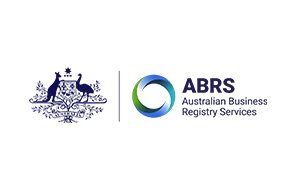It's too much money! Honey!

With PUP joining hands alongside Liberals to water down FOFA laws, a few questions arise; What is the real issue with Financial Planning laws? Why is it that we have seen so many cases of fraud and inappropriate advice?
Years ago, when I was earnestly studying to become a tax advisor, I had an opportunity to sit in a presentation by one of the best known Australian minds in Superannuation and Financial Planning Industry. After the presentation I approached him to seek guidance on my career path. He said, ' Manu, how much do you think the best paid partners in large tax firms make a year? About $500,000. This kind of money is made by a corner shop financial planner in Parramatta!'. Now I must add that this great mind continues to be one of the most ethical advisors I have met in my lifetime. He, however pinpointed to the problem in Financial Planning industry, so succinctly : It's Too Much of Money! Honey!
In financial planning industry you could earn as much as a Cardiologist without years of education and training or thousands in HECS debt. Even a hairdresser has to study way more for her license than a financial planner does. I guess it is this attraction of easy money which creates 'conflict of interest' and, at times, inappropriate advice, which results in people loosing their lifetime of savings.
So what does this new look FOFA mean to us?
- Financial Advisors would be able to tick a few boxes to confirm that 'they acted in best interest of their client' without any rigorous compliance.
- Bank tellers will be able to lead you into buying their insurance and superannuation products without personalised advise for commissions.
- Ongoing clients will continue to pay commissions to their financial planners without even knowing how much! This is even when the financial planner has never contacted them over the years.
So what do we, as ordinary Australians, need to do?
When you deal with a financial planner, ask him these top 10 questions;
- Are you a certified financial planner? What are your qualifications, your strengths and your experience?
- Have you ever recommended a managed agricultural scheme?
- Do you put your clients into your own firm's funds and products? Who owns your advice license and do you or your firm receive any benefits by recommending their products?
- If you make a financial recommendation, will you show me something comparable from a company you are not aligned with?
- Can you show me the benefits I receive from my decisions?
- Can you show me a sample statement of advice?
- Can you show me your investment portfolio?
- Do you offer flat fee-for service pricing or do you earn commissions from your recommendations?
- What ongoing care will you provide me, and how much will it cost?
- Would you have any issues if I discuss your statement of advice with another financial planner or with my accountant?
 |
Once you find a good financial planner and have their statement of advice, do not be hesitant to take a second opinion or discuss his answers with your trusted accountant. Impartial second opinion always helps.
Alternatively, consider Doing it Yourself. You can choose to set up a Self Managed Superfund (SMSF) and manage your investments yourself. Three key questions to ask yourself before you set up your own SMSF;
- Do I have sufficient balance in my fund to be able to make an SMSF viable?
- Do I have the time and inclination in doing the hard yards and making choices of investments for my fund?
- Do I have the required knowledge to ensure my SMSF is compliant under the law.
We can help you work through the above questions in making an informed decision towards securing your retirement nest egg.







